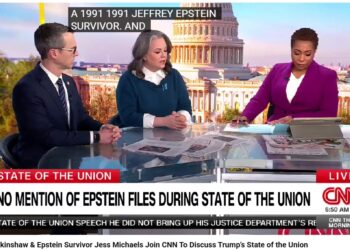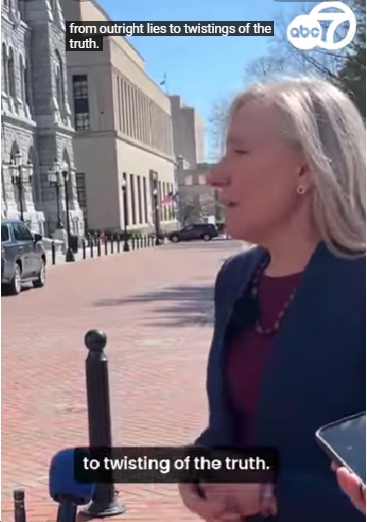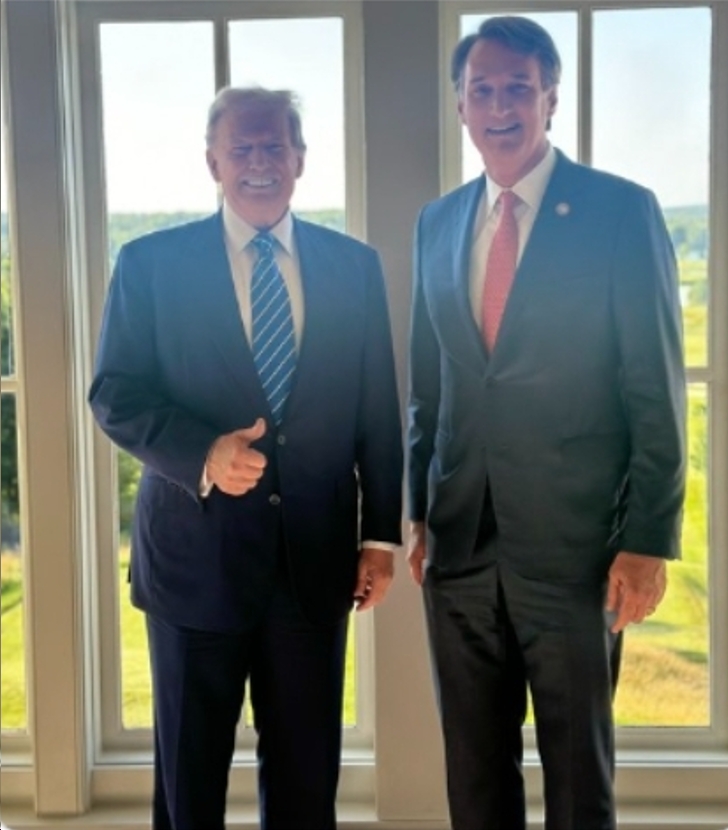Former VA Lt. Gov. Bill Bolling, a conservative Republican and Trump voter, had the following to say this morning. I strongly agree with him – whether we’re talking about Trump becoming a de facto dictator, or about ANY PRESIDENT who tries to “put Executive power above the Congress, the Courts, the Constitution and the law.” That’s simply not what the United States of America is supposed to be, and if it happens, we will NOT be the United States of America anymore – at least as we’ve known it for 250 years. So we’d all better make damn sure that doesn’t happen!
P.S. It’s always worth reminding everyone that Bolling voted for Trump, despite MANY misgivings, because he was unhinged/hysterical about Kamala Harris supposedly being a “socialist” who would have “open borders,” blah blah blah. How can someone as smart as Bolling have been sooooo stupid in voting to give wannabe dictator Trump unlimited power? Decades of right-wing propaganda, plus some racism and misogyny thrown in to boot?
********************
UNDERSTANDING THE EVOLUTION OF PRESIDENTIAL POWER
If one thing is clear from the first 100 days of the Trump administration 2.0, it is that the President and his advisors intend to do everything they can to unilaterally exercise maximum presidential power, even if that means challenging established norms regarding the power of the presidency.
Over the years, presidential power in the United States has changed dramatically.
In the early years of our nation, most Presidents practiced what was generally referred to as the Limited Presidential Theory.
The Limited Presidential Theory held that the presidency was a constrained office. This theory was characterized by the belief that the president’s duties were primarily administrative, and the president was not a policy leader. That role was reserved for Congress.
Most presidents in the 18th and 19th centuries adhered to the Limited Presidential Theory, with a few notable exceptions. These presidents believed that they could only exercise those powers that were specifically given to them in the Constitution.
However, by the early 20th century the country had become larger and more complex, and Presidents like Teddy Roosevelt believed the President needed to assume more power. They advanced the Stewardship Theory of the presidency.
Unlike the Limited Presidential Theory, the Stewardship Theory called for a “strong presidency” that was limited, not by what the constitution allowed, but by what it prohibited.
Teddy Roosevelt, in defending the Stewardship Theory of the presidency, once remarked: “My belief was that it was not only the president’s right but his duty to do anything the needs of the nation demanded unless such action was forbidden by the Constitution or by the law.”
During the 20th century, many Presidents used the Stewardship Theory to significantly expand presidential powers, most notably President Franklin Roosevelt during the decade of the 1930s, which was characterized by The Great Depression and the outbreak of WWII.
One of the characteristics of presidential power that has subsequently grown over the decades is the expanded use of Executive Orders.
Executive Orders are nothing new. They go all the way back to George Washington, the nation’s very first President.
However, historically Executive Orders were primarily used to set forth the President’s approach to managing the administrative tasks of the Executive branch, not for embarking on new or substantive policy initiatives.
In recent years, Executive Orders are being used much more aggressively to accomplish substantive policy goals that the President cannot accomplish through normal legislative channels.
Take for example President Biden’s use of Executive Orders to drastically expand student loan forgiveness, or President Trump’s recent Executive Orders to try and change birthright citizenship or withhold funding from certain government agencies and programs.
The expanded use of Executive Orders to increase the power of the President is just one reason why many political scientists argue that we are now living in an area that goes beyond the Stewardship Theory of the presidency. They have referred to this as the era of the Unitary Presidency.
The Unitary Presidential Theory is characterized by Presidents seeking to exercise authority on their own that was previously reserved for Congress. For example, creating and implementing new government programs, allocating funds to these programs; or reducing or eliminating funding for programs they do not agree with.
Based on the furor with which President Trump has issued Executive Orders in the first 100 days of his second administration, it is apparent that this is a tool he wants to use to dramatically increase presidential power. It could take the Unitary Presidential Theory to a new level.
Predictably, many of the efforts President Trump has made to use Executive Orders to implement his agenda have been challenged by Democrats and other interest groups in the courts. The courts have suspended many of these Executive Orders, leaving the Trump administration frustrated.
This has prompted some Trump administration officials, including Vice President J.D. Vance, to go on record questioning the authority of the courts to provide this type of check on the Executive branch.
They have not only expressed their disagreement with the court’s decision, which is certainly their right (that’s what judicial appeals are all about); but they have used language that some have interpreted as questioning the power of the Judicial branch to oversee the actions of the Executive branch.
The power of the Judicial branch to oversee the actions of the Executive and Legislative branches of our government, which is known as Judicial Review, has been a longstanding principle that dates to the 1803 Supreme Court decision in the case of Marbury v Madison.
If the Trump administration were to argue that the Judicial branch does not have the authority to exercise a check on Executive power, and refuse to abide by judicial decrees, they would create a modern constitutional crisis. It would give the President almost unlimited powers. I refer to this as the Imperial Presidency.
The Imperial Presidency would be characterized by the belief that presidents can do almost anything they want, whenever they want and however they want. It would, essentially, put Executive power above the Congress, the Courts, the Constitution and the law.
There are nations around the world that give their leaders almost unlimited powers, but they are not democratic Republics like the United States. They are Monarchies, Communist states, or nations that follow a totalitarian, authoritarian or dictatorial approach to governance.
No citizen should want a President – this President or any President – to be able to exercise more power than they are properly given under the Constitution; and they certainly should not want to give the President unlimited and unchecked power.





![Video: Speaking at Democratic AG’s Conference, Jay Jones Says Trump “probably doesn’t like the fact that I’m sitting in this seat, but here I am ready to defend [against] anything that he’s trying to do.”](https://bluevirginia.us/wp-content/uploads/2026/02/jonessanfran.jpg)












